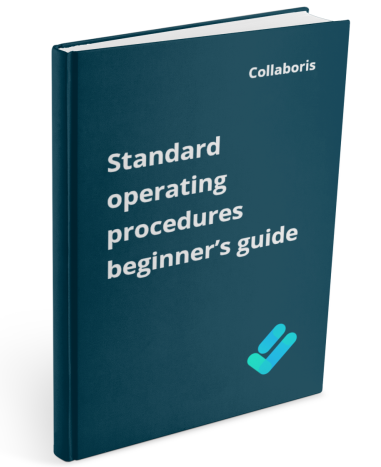Best Practices for Policy Change Management in SharePoint Managing policy documents efficiently is crucial ...
Maximising knowledge management in healthcare
Knowledge management is really important in the healthcare industry. This means making sure that people have the right information they need to do their jobs well and help patients. It's like having a big library of knowledge that everyone can use to make better decisions and provide better care. By sharing information and learning from each other, healthcare workers can improve the quality of care they give to patients.
Effective knowledge management means organizing and sharing information in a way that helps people make better decisions. When it comes to healthcare, this can lead to
- better patient outcomes (like faster recoveries or fewer complications) and
- lower costs (because doctors and nurses are making more informed choices).
By using tools like electronic medical records and training programs for staff, hospitals and clinics can improve their knowledge management. This will ultimately provide better care for patients.
Current challenges in knowledge management
Healthcare organizations face several challenges when it comes to managing knowledge effectively. One of the most significant challenges is the sheer volume of information that healthcare professionals must process daily. With new research, treatments, and technologies emerging constantly, it can be challenging to keep up with the latest developments.
Another challenge is the need to ensure that knowledge is shared effectively across different departments and teams within an organization. This requires effective communication channels and collaboration tools that enable healthcare professionals to share information and insights easily.
In addition, healthcare organizations must also navigate complex regulatory requirements and compliance standards. These can make it difficult to manage knowledge effectively while ensuring patient privacy and confidentiality.
Finally, there is the challenge of ensuring that knowledge is accessible and usable by all healthcare professionals, regardless of their level of expertise or experience. This requires effective training and development programs that equip healthcare professionals with the skills and knowledge they need to provide high-quality care.
To overcome these challenges, healthcare organizations must invest in robust knowledge management systems that enable them to capture, store, and share knowledge effectively. They must prioritize ongoing training and development for their staff. As well as using effective communication and collaboration tools that facilitate knowledge sharing across different teams and departments. By doing so, healthcare organizations can improve patient outcomes, enhance the quality of care, and drive innovation in the field of healthcare.
Impact on patient care
There are several ways in which ignoring challenges can have a negative impact on patient care and organizational success.
One of the most significant impacts is that it can lead to delays in patient care. When healthcare professionals are unable to access critical information quickly, it can slow down the diagnosis and treatment process, which can ultimately harm the patient's health outcomes.
Another impact is that it can increase the risk of medical errors. When healthcare professionals are working with incomplete or inaccurate information, they may make mistakes that could have been avoided if they had access to all the necessary data.
These challenges can also lead to decreased efficiency and productivity within healthcare organizations. When staff members spend more time searching for information or dealing with technical issues, it takes away from the time they could be spending on patient care.
Additionally, these challenges can negatively impact patient satisfaction. Patients expect to receive high-quality care, and when they experience delays or errors due to technology issues, it can lead to frustration and dissatisfaction.
Overall, it is essential for healthcare organizations to address these challenges proactively to ensure that they are providing the best possible care to their patients while also maintaining organizational success.
Are your policies read on time and by the right people?
DocRead can help
Strategies for maximizing knowledge management in healthcare organizations
Healthcare organizations face the challenge of managing vast amounts of information and knowledge on a daily basis. Effective knowledge management can help these organizations improve patient outcomes, reduce costs, and enhance overall performance. Here are some proven strategies that healthcare organizations can use to maximize their knowledge management efforts:
1. Establish a knowledge management system
The first step in effective knowledge management is to establish a system that allows for the capture, storage, and retrieval of information. This can be achieved through the use of electronic health records (EHRs), clinical decision support systems (CDSS), and other digital tools.
2. Encourage collaboration and communication
Collaboration and communication are essential components of effective knowledge management. Healthcare organizations should encourage their staff to share information and insights with one another, and provide opportunities for collaboration through team meetings, online forums, and other channels.
3. Invest in training and development
To ensure that staff members are equipped with the skills and knowledge needed to effectively manage information, healthcare organizations should invest in training and development programs. These programs can cover topics such as data analysis, information governance, and best practices for knowledge management.
4. Leverage analytics and data visualization tools
Analytics and data visualization tools can help healthcare organizations make sense of large amounts of data and identify trends and patterns. By leveraging these tools, organizations can gain valuable insights into patient care, operational efficiency, and other key areas.
5. Foster a culture of continuous improvement
Finally, healthcare organizations should foster a culture of continuous improvement when it comes to knowledge management. This means regularly reviewing and refining processes, seeking out new technologies and tools, and encouraging staff members to share feedback and ideas for improvement.
By implementing these strategies, healthcare organizations can maximize their knowledge management efforts and achieve better outcomes for patients and stakeholders alike.
Conclusion
Knowledge management plays a crucial role in healthcare as it enables healthcare professionals to access and share information that can improve patient outcomes. By implementing effective knowledge management strategies, healthcare organizations can ensure that their staff has access to the latest research, best practices, and clinical guidelines. This can lead to better decision-making, improved patient safety, and more efficient use of resources. Additionally, knowledge management can help healthcare organizations identify gaps in their knowledge and prioritize areas for further research and development. Overall, knowledge management is essential for delivering high-quality care and improving health outcomes for patients.
It is imperative for healthcare organizations to prioritize knowledge management as a key component of their overall strategy. By doing so, they can ensure that critical information is effectively captured, stored, and shared among staff members. This will not only improve the quality of patient care but also enhance organizational efficiency and effectiveness. Therefore, healthcare organizations must invest in robust knowledge management systems and processes to stay competitive in today's rapidly evolving healthcare landscape.
You may also like:
April 8, 2024
February 12, 2024
The Importance of Employee Knowledge Management In today's fast-paced business environment, knowledge is a ...
January 30, 2024
Leveraging AI for Policy Writing SuccessIn the realm of policy writing, data and documentation ...
January 16, 2024
10 Essential Tips for Effective Policy Management: A Comprehensive Guide In today's fast-paced business ...
December 12, 2023
The urgency of establishing an AI usage policy In the ever-evolving landscape of business ...
November 15, 2023
Maximizing internal communicationsIn the modern business landscape, effective internal communication is the cornerstone of ...


